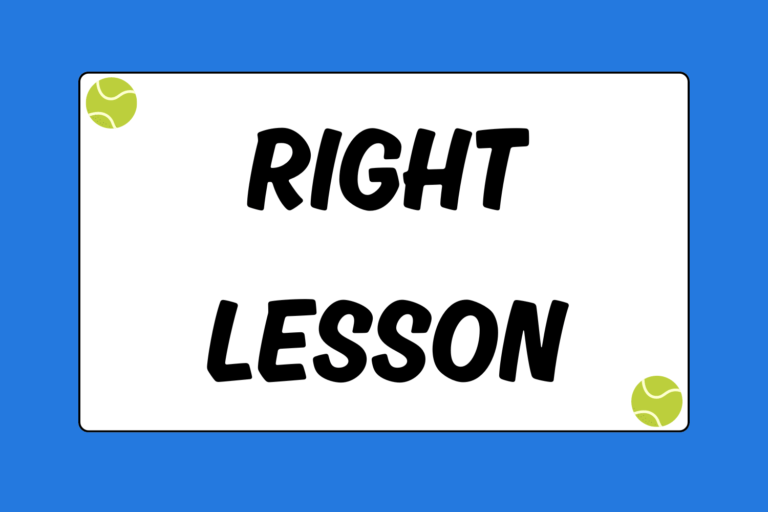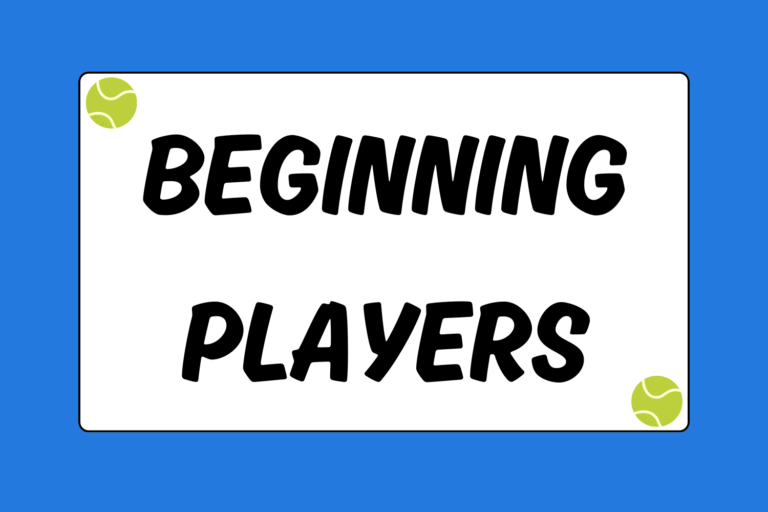As a tennis player, there is no greater accomplishment than winning a tournament. Tournaments normally last an entire weekend and you’ll often play multiple matches per day. The pros might make it look easy on television, but hoisting a tennis trophy is no simple feat. This guide breaks down how to prepare for an upcoming tournament, so you, too, can leave a winner.
All-around Game
Preparing for a tournament involves an entire shift in your daily routine and general habits. Any competitive tennis player looking to win a tournament should follow the pieces of advice laid out below:
Grips
The night before your tournament, ensure that all of your grips are in good condition. You may have to switch racquets during the match, and playing with a worn-down grip is extremely challenging. Use overgrips on any racquet that needs a replacement and wrap them the night before your tournament. If you’re rushing during a changeover to replace your grip, you’ll likely do a poor job and have less control of your racquet.
Some players oppose overwraps because they increase the size of the handle and make it feel somewhat bulky. If you share this aversion, go to a pro shop and re-grip your racquet about a week in advance.. For more information on what to bring to your match, refer to our guide, Tennis Bag Essentials.
Strings
While you may swear by the “lucky” strings that helped you win last fall, don’t head into your tournament with dead strings. Re-stringing your racquets can slightly deflate your wallet, but make sure you have at least two racquets with fresh strings. Many players prefer the feel of slightly-used stringbeds, though. If this is the case, practice with your newly-strung racquet for about five days before the tournament begins.
Diet
Loading up on carbohydrates the night before a tournament is not an effective way to prepare your body for an arduous competition. You need to build up your nutrient stores in advance, so start eating carb-heavy food — like pasta, oatmeal, salad, and rice — four days before your tournament begins. Carbs are your main source of energy, so consume more of them heading up to your match, even if it means cutting down on your intake of meat and other proteins.
Likewise, increase your potassium intake. Eating two bananas every day, three or four days before your tournament will help you retain water. During the week leading up to your tournament, you should also be drinking water throughout the day. You’ll probably spend more time than usual in the bathroom, but proper hydration is absolutely necessary for your muscles and to prevent cramps.
Hot Tip: Drink Responsibly
Avoid dehydrating your body with energy drinks, caffeine, coffee, or alcohol. Adequate fluid intake helps regulate body temperature, digest food, transport nutrients, and eliminate waste. So, monitor your daily intake of fluids.
Stretching
It’s paramount that you head into your tournament feeling loose and limber. Stiff and achy muscles will undoubtedly detract from your performance, so reserve at least 15 or 20 minutes of your day for stretching. Seven days prior to your match, develop a solid stretching routine that targets each muscle group, including your shoulders, back, hamstrings, calves, forearms, and hips. Mixing in some light jogging will help your muscles stay warm, as well.
Training
It’s wise to drop most of your off-court training, like weight lifting, about five days before your tournament begins. You don’t want to feel sore or tight during your matches, so focus on your on-court training, instead. You should play every day of the week prior to your tournament, and work with a coach on specific facets of your game that need improvement.
Don’t overtrain, though, and make sure to give your body plenty of time to rest and recover. Try breaking up your practices into shorter sessions. Rather than staying on the court for three hours at a time, practice three times per day — but never hit for more than 45 minutes. Your body should stay fresh, and you’ll feel confident and prepared heading into your tournament.
Trophy Time
There are no short cuts when it comes to proper preparation. Many students have “crammed” for an upcoming math or science test, but doing so rarely pays off. In tennis, rushing through your preparation routine, or neglecting it altogether, destroys your chances of winning, so take the time to put together a thorough program.
Use a calendar to organize all of your weekly events, and develop a realistic routine that helps you prepare for an upcoming tournament. Over time you’ll learn the methods and techniques that work best for you and give you the confidence to become a champion.





